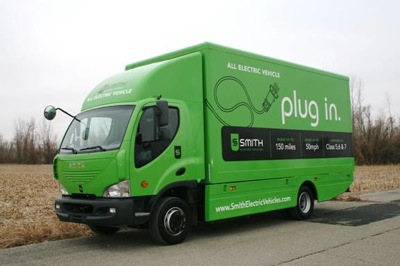Kansas City-based Smith Electric Vehicles has become the latest electric-vehicle building startup to cease operations--though the company says it isn't shutting its doors for good.
The firm builds electrically-powered commercial vehicles both in the U.S. and abroad, but hasn't yet turned a profit.
According to Kansas City Business Journal, the stoppage is a strategic move.
CEO Bryan Hansel said the company didn't see the value in continuing to build such a small number of vehicles at the price point they were at.
Hansel notes that it's natural for a fairly young business to not turn a profit right away--and that its clients, suppliers and investors have all been made aware that the temporary stoppage is part of the company's plan.
DON'T MISS: Life With Tesla Model S: Battery Safety Shield In Detail (Photos)
The firm now needs to transition its manufacturing and assembly processes "to the next level", says Hansel--preparing for greater volumes and greater potential to make money. Further plans to open production facilities in New York and Chicago have been put on hold for the time being.

Smith Newton
While many large automakers are giving electric projects the green light, and startups such as Tesla Motors have proven successful so far, the industry is littered with the remains of failed electric startups.
MORE: Is Tesla Motors A Carmaker...Or Really A Grid Storage Company?
In many cases, costs have escalated far beyond the point where niche-market products can turn a profit. Others still have struggled to even get off the ground.
To its credit, Smith produces a few hundred vehicles per year at its Kansas facility and its website boasts some large clients--including Coca-Cola and the U.S. Marines. Even so, volumes have proven too low given the limited return on investment.
The firm is currently reorganizing its supply chain, preparing to produce hundreds--or even thousands--of vehicles when production resumes. At greater volumes, Hansel suggests the company could be profitable by the end of the year.
That remains to be seen--history certainly isn't in the electric startup's favor.
_________________________________________













